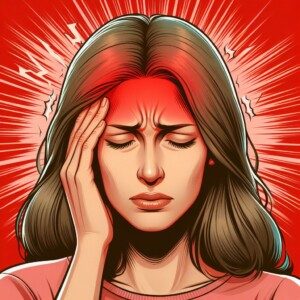
Migraine headaches can really mess up your sleep, but there’s good news:
Specific things you can do to finally get a good night’s sleep.
“Migraine headaches can happen at any time of the day or night,” says Daniel Kantor, MD, director of the Neurology Residency Program, Florida Atlantic University.
“We are often so busy during the day that some people are ‘too busy’ for the headache during the day (they have it but just don’t notice it), and only really feel the pain at night.”
And that’s when the problems begin, when the migraine headache sufferer tries to fall asleep.
First Tip for Falling Asleep Despite Migraine Headaches
“Sleep hygiene means doing things right to make the bedroom an environment conducive to sleep,” says Dr. Kantor.
“The bedroom is for two things: sleep and sex. It is not a place for TV watching, eating, etc. — these things are stimulating and will keep you awake and make it harder to fall asleep.”
You don’t want the bedroom to be a conditioned stimulus for staying awake.
Second Tip for Migraine Relief
The next thing is to make sure your doctor is doing all that’s possible to lower the intensity of your migraine headaches, since a good night’s sleep will be impossible if the pain is bad enough.
Dr. Kantor advises: “Try to relax before falling asleep — breathing exercises work great, as does mindful meditation.”
Wind down as bedtime approaches; avoid stressful or stimulating activities like heavy computer work.
Additional Sleeping Tips for Migraine Headache Sufferers
“Take a warm bath 45 minutes before your bedtime — as your body cools down, you get sleepier and sleepier,” says Dr. Kantor.
He also suggests taking a medication prior to bedtime that’s designed to subdue migraine pain, as these can induce a sleepy feeling.
“Go to bed at the same time every night, so that your body gets used to a full night’s rest.” This will help reset your body’s circadian rhythm.
“Make sure to talk to your doctor about your sleeping problems — they may be related to other problems, like anxiety, stress, depression and even sleep apnea and narcolepsy.
“Sleep apnea is important, not only because it makes you feel less rested, but also because it causes chronic migraines and can lead to an increased risk of heart attack and stroke.”
Being overweight, with a short thick neck, are risk factors for sleep apnea, though thinner people, including children (a tiny percentage) can have this treatable disorder.
If you suffer from migraines, it is absolutely crucial that you persistently try to remedy any sleeping problems. Dr. Kantor says, “We know that lack of sleep can trigger migraines.

Dr. Kantor is also President Emeritus, Florida Society of Neurology.
 Lorra Garrick has been covering medical, fitness and cybersecurity topics for many years, having written thousands of articles for print magazines and websites, including as a ghostwriter. She’s also a former ACE-certified personal trainer.
Lorra Garrick has been covering medical, fitness and cybersecurity topics for many years, having written thousands of articles for print magazines and websites, including as a ghostwriter. She’s also a former ACE-certified personal trainer.
.









































